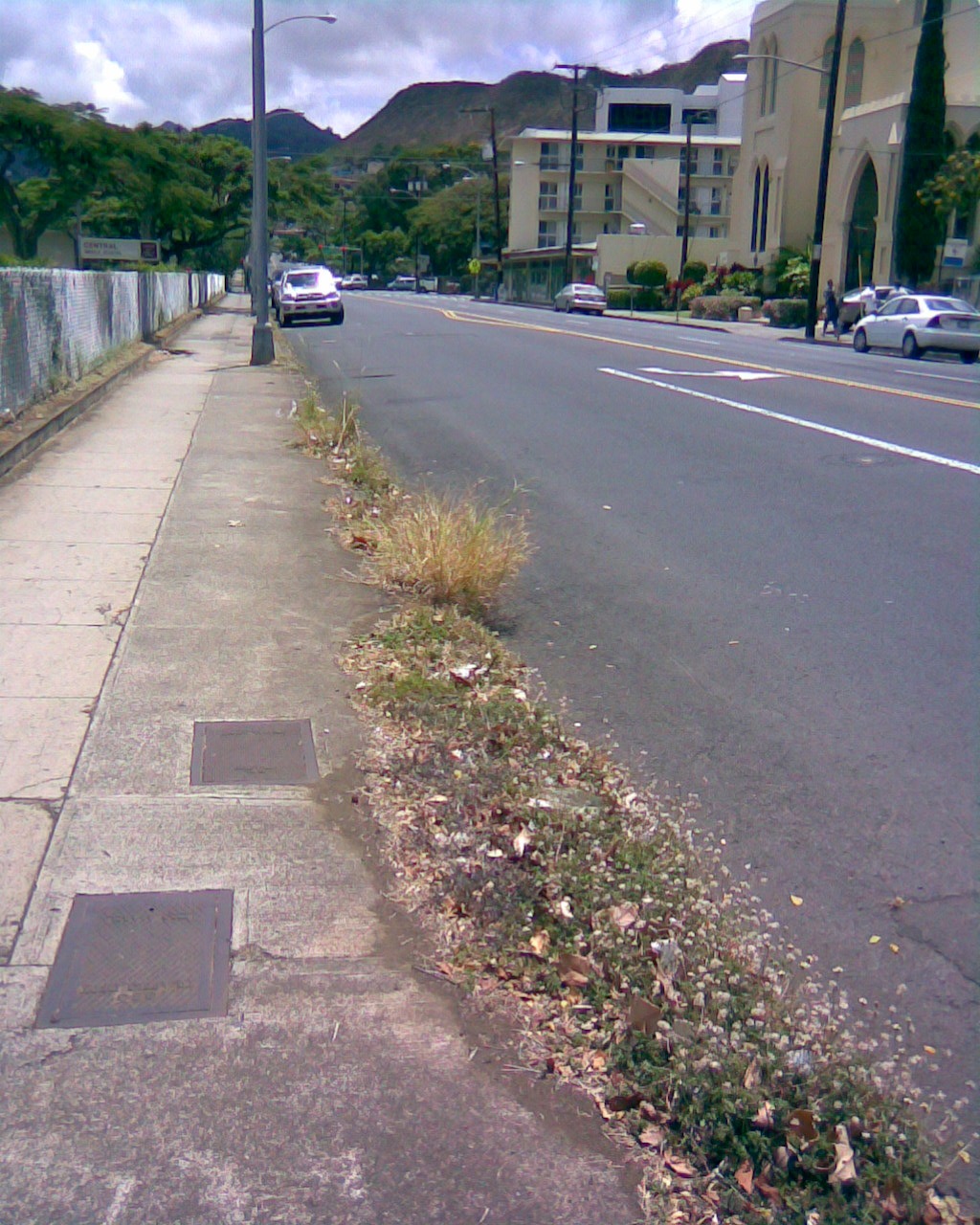Sunday, October 12, 2008
Will a ConCon make a difference in citizen involvement in government?
by Larry Geller
University of Hawaii political science professor Ira Rohter wrote a compelling argument in favor of holding a constitutional convention in today’s Star-Bulletin, Why hold a Con Con? (snippet):
Most frightening, however, is the inability of the present arrangement of power to prepare islanders for the coming major crises caused by soaring oil prices (Peak Oil), and, by the next decade, the effects of global climate change on all facets of our lives.
We've already had a taste of a years-long upward trend in oil prices. Know-ledgeable experts predict oil costing from $300-$500 a barrel by 2012. The world economy is already in serious trouble, as is Hawaii. Without replacement energy sources and conservation - especially for transportation fuels and electricity - we will be in emergency mode. Yet our leaders act as though our future will be mostly a continuation of trends started in the 1970s. The few baby steps they have taken to promote energy and food self-sufficiency demonstrate no sense of urgency or recognition of impending crises affecting the islands from increasing oil prices, climate changes, or resulting economic meltdowns.
Neither the state nor counties, including Honolulu, have formal plans for conservation, use of energy saving mechanisms, an energy strategy, or an office responsible for monitoring and managing costs, unlike mainland cities such as Portland, Phoenix, Philadelphia, Salt Lake, Seattle, and a host of others. Baby-step "actions" at the state level are too incremental - too little, too late.
Rohter holds that
It's time to move to citizen-involved governance such as I saw in Maine, and is practiced elsewhere.
I wonder if Hawaii’s citizens would indeed participate as do the citizens of Maine, or do we look more to our leaders to run the government while we take care of our families and homes? This isn’t Maine. Perhaps, given the reorganization of government that Ira advocates, citizens would participate more. Perhaps, as I suspect, and as we do see elsewhere, big money talks, and buys its way into local, inexperienced governments, either through the referendum process, or by stuffing boards, commissions and local government with bought-off cronies.
Governor Linda Lingle has tried hard to both break up Hawaii’s single Board of Education into a number of baby boards, and to get her people elected or appointed in order to increase her control, but it has so far failed. I think people not only see through the gambit, but perhaps they prefer a large, centralized and perhaps paternalistic form of government.
 Looking after dams, roads and other infrastructure is certainly something an efficient centralized bureaucracy should be good at, and if not, citizens can fix it. That they don’t, that things are allowed to rot, rust and decay all around us, indicates to me that citizens don’t necessarily want to participate. They may or may not trust government, but they take pretty much whatever it dishes out. (pic is a sidewalk one block from Beretania St., in the heart of town, unmaintained and going to ruin)
Looking after dams, roads and other infrastructure is certainly something an efficient centralized bureaucracy should be good at, and if not, citizens can fix it. That they don’t, that things are allowed to rot, rust and decay all around us, indicates to me that citizens don’t necessarily want to participate. They may or may not trust government, but they take pretty much whatever it dishes out. (pic is a sidewalk one block from Beretania St., in the heart of town, unmaintained and going to ruin)
Rohter’s criticism above is right on the money, though, and he is not alone. Prof. Jim Dator expressed similar concerns in his August 25 talk to Kokua Council. Why are we not doing anything?
On this blog I have wondered why we do not use catchment water in our homes to flush toilets, do the laundry and more. It falls from the sky, is free, and we waste it. Has a ConCon any special magic to fix this?
 Here’s a pic out my condo window. See the solar panels on the low-income development in the mid-distance? See any others? Hmm? When are we going to actually use some of our sunlight and pay less for electricity? Why have we not been the leader in alternative energy (the governor calls for innovation, but we have little to show for it).
Here’s a pic out my condo window. See the solar panels on the low-income development in the mid-distance? See any others? Hmm? When are we going to actually use some of our sunlight and pay less for electricity? Why have we not been the leader in alternative energy (the governor calls for innovation, but we have little to show for it).
It should not take a ConCon to make things happen in Hawaii. After a ConCon, will we participate more? Will we take a sudden interest in children's education? Will alternative energy flow? Will we still leave everything to our elected leaders?
Rohter laments the “inability of the present arrangement of power to prepare islanders for the coming major crises,” which is a recognition of our paternalistic attitude toward our government. That is, we ask “daddy, why didn’t you prepare us for the coming crisis” instead of participating in the preparation ourselves. Those who just pay their HECO bill each month while complaining about how it goes up, those who walk that rotting sidewalk each day, watching the grass destroy it, and those who accept an inferior educational system for their children may just prefer it that way.
I don’t know, there’s such a push on for a ConCon that I just feel like asking the question. Is there really a silver bullet that will change Hawaii? I doubt it.
It would be nice if all these better governance and sustainability issues could be addressed in a Con Con. But Uncle Ira’s stars in his eyes notwithstanding I doubt it would happen that way. There will be no legislative reform to get rid of these hurry up and wait provisions, bill-killing committee chairs and gang warfare at the all too brief sessions, much less other state government improvements with all the progressive issues on the table and implemented. Instead the delegation will be comprised of those who win another 21st century, sorry-excuse-for-democracy election bought and paid for by corporate interests– that will select people who will address the issues their corporate masters dictate not ours.
but what's with the push not to have? too expensive? ;unnecessary? fear of change? i say join together and hash it out. will it create increased citizen involvement? doubt it but it won't make it worse than it is. why not? what's at risk because of a concon that isn't at risk already?
<< Home




Post a Comment
Requiring those Captcha codes at least temporarily, in the hopes that it quells the flood of comment spam I've been receiving.